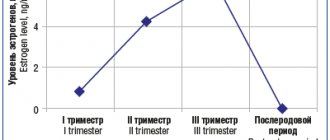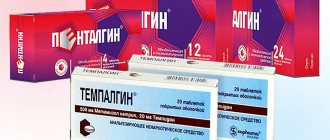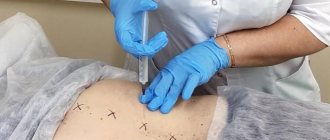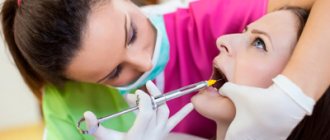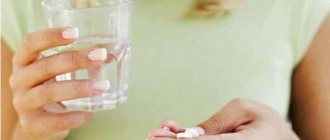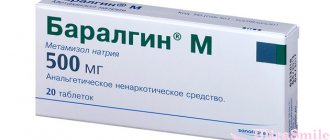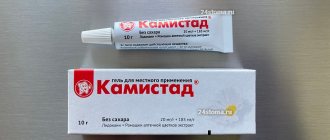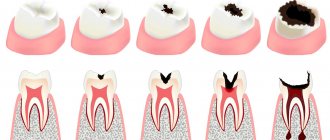During breastfeeding, many women experience dental problems. Most often, caries, inflammation and bleeding of the gums, and mobility of dental elements are observed. The cause of the disease lies in calcium deficiency in the body and decreased immunity, which is often observed during pregnancy and lactation.
Is it possible to treat teeth while breastfeeding?
But often a nursing woman puts off a visit to the dentist, fearing that the treatment may harm the baby. In fact, a nursing mother should visit the dentist even more often than usual.
What painkillers can you take while breastfeeding?
When breastfeeding, it is safe to take the following painkillers: Paracetamol, Ibuprofen, Drotaverine (“No-shpa”), Ketorolac (“Ketorol”, “Ketanov”, “Ketalgin”). Injections of lidocaine or articaine are suitable for pain relief during dental treatment. For local anesthesia for bruises and some other injuries, you can use ointments based on diclofenac.
| Allowed | Prohibited |
| Paracetamol | Metamizole sodium (Analgin) |
| Ibuprofen | Nimesulide (“Nimesil”, “Nise”) |
| Drotaverine ("No-shpa") | Acetylsalicylic acid (“Citramon”, “Aspirin”) |
| Ketorolac (“Ketorol”, “Ketanov”, “Ketalgin”) |
Terms of use
Dr. Komarovsky, for example, recommends avoiding the use of painkillers while breastfeeding or pregnant, as some drugs simply have not undergone proper clinical studies. However, if a woman cannot tolerate severe pain, there is no point in waiting for it to go away on its own or using dubious traditional methods. Here are a few rules that will help you quickly deal with the problem and avoid harming yourself and your child:
- It is important to understand: painkillers only relieve the symptom, but do not cure the disease itself. Therefore, in case of painful discomfort, it is recommended to consult a doctor, find the cause of the discomfort and eliminate it. So, if you have a toothache, visit the dentist; if you have pain in your ear, visit an ENT doctor. If the root cause is not eliminated, the pain will occur again and again, requiring another dose of medication.
- Even for a drug prescribed by a doctor, check the instructions, or rather the section “Use during pregnancy and breastfeeding.” There are no prohibitions - take it, and in the recommended dosage. But! The quantitative transfer of drugs into mother's milk has been studied only for a few drugs. Therefore, in most cases, you will see that the drug has not been studied during pregnancy and lactation, or pregnancy and lactation are contraindications for use (precisely due to the lack of studies on this group). Some mothers try to reduce the harm of drugs by reducing the dose. It is not recommended to do this; the expected effect will not happen (especially if we are talking about products that are acceptable during breastfeeding!).
- Look in the instructions for an indicator that is important for us - the drug elimination period. As a rule, it is the same for blood plasma and breast milk. This way you can calculate the period when the drug leaves your body. Analgesics penetrate into the blood and into mother's milk at the same time: this requires only half an hour, the maximum concentration occurs after 1–1.5 hours. And they appear longer – up to 2–7. The half-life of paracetamol, for example, is about 3, and acetylsalicylic acid - up to 7.
Dental procedures during lactation
X-ray
To develop a treatment plan, you may be prescribed an x-ray. This procedure is carried out using digital equipment with a minimal dose of radiation, and you will be wearing a protective apron while the device is operating. The photograph taken will allow you to assess the condition of the roots and canals, so do not refuse to undergo an x-ray.
X-ray
Instead of an x-ray, you can undergo a visiography procedure. In this procedure, radiation exposure falls only on the diseased tooth, and no dangerous radiation reaches the body. And the radiation dose is much lower than with digital x-rays.
- Suppositories for hemorrhoids during breastfeeding for effective treatment
Visiography of teeth
Doctors recommend expressing after an x-ray and not using this milk. Sometimes women complain of a decrease in milk production after an x-ray, but after a short period everything is restored.
Video: X-ray and fluorography during breastfeeding
Removal of decayed teeth and roots
In some advanced cases, the destroyed element of the dental system cannot be saved and must be removed. Uncomplicated tooth extraction is performed under local anesthesia; these drugs quickly stop circulating in the bloodstream. It is necessary to follow the same rules as when treating teeth with local anesthetics.
Removing a tooth root using forceps
In advanced situations, gumboil may develop - purulent inflammation of the bone tissue near the diseased tooth.
Flux
Then, after tooth extraction, the doctor will definitely prescribe antibiotic therapy. If drugs that are compatible with lactation are chosen, you can continue to feed the baby. Otherwise, the child is temporarily transferred to formula and milk is expressed while taking antibiotics in order to maintain lactation.
Prosthetics on implants
Photo of fixed prosthetics on implants
Dental implantation cannot be performed during lactation. This applies to both one-stage and two-stage implantation methods. The fact is that after implantation, a number of medications are prescribed that are incompatible with breastfeeding. In addition, during lactation, artificial roots may take root poorly. Therefore, implantation should be postponed until the end of breastfeeding; if necessary, temporary crowns can be installed.
Temporary crowns
Installation of braces
Orthodontists do not recommend installing braces or correcting the bite until lactation is complete. This is due to the fact that during lactation it is impossible to put additional stress on the bone tissue of the jaw, which lacks calcium. It is recommended to carry out treatment with braces no earlier than 6 months after the end of breastfeeding.
Installation of braces
Teeth whitening
You will have to refrain from teeth whitening using professional equipment during breastfeeding. For these purposes, a nursing mother can only use pastes, gels or chewing gum.
Whitening toothpaste
The fact is that during teeth whitening using professional equipment, the dye is removed from the tooth enamel and after whitening, rehabilitation is necessary with the use of medications that promote the mineralization of tooth enamel. During breastfeeding, the rehabilitation period takes a longer time and may be accompanied by the development of caries due to a lack of calcium ions.
- Ascorutin during breastfeeding
Video: Teeth whitening while breastfeeding
Dental treatment
Some young mothers are afraid to go for dental treatment because they read somewhere that anesthesia can have a bad effect on the quality of breast milk. In reality, this is not so: the doctor gives a local injection, which has a short-term effect and is quickly eliminated from the body, and therefore does not cause any harm to the baby’s health? As stated in the online magazine “Doctor Zubov”. So it is possible and necessary to treat teeth with pain relief during lactation. It is better to clarify in advance which drug will be administered to you, and inform the dentist about breastfeeding. In this case, the doctor will select the optimal remedy that will not only provide excellent pain relief during dental treatment, but will also be eliminated from the body as quickly as possible.
Risks of self-medication
Some patients are terrified of dentists, so they try to self-medicate. The first wrong step is to use the advice of neighbors and friends who are not competent in this matter. For example, a common mistake is to take dietary supplements with a minimum amount of microelements, instead of carrying out deep fluoridation of teeth. It is very dangerous to diagnose yourself, since the symptoms of many diseases are similar. As a result of taking inappropriate medications, the body malfunctions. Women's milk disappears or becomes unsuitable for feeding. Without knowing this, young mothers continue to feed their babies, which poisons their body. In addition, the toddler may develop allergies, swelling, and difficulty breathing. Therefore, in order not to endanger her child, every mother should follow the doctor’s recommendations.
Of the preventive measures, the first place is regular cleaning of the oral cavity, rinsing the mouth after meals, using floss, and timely replacement of the toothbrush. Pregnant women and nursing mothers should eat a balanced diet and consume foods rich in calcium. Preventive examinations should be carried out once every six months. If there are problems, it is better to solve them immediately, to prevent depulpation of the masticatory organs.
List of approved drugs
Now a woman can turn to the Internet for help: just enter the appropriate name of the medicine into a search engine, and several sites will tell you whether it is allowed to be taken during pregnancy or lactation. For example, there is a universal reference book e-lactation. If we talk about painkillers, which are usually used for severe headaches and toothaches, as well as during extremely painful periods, here is a complete list of tablets that you can take, as well as intramuscular, external and rectal agents:
- Preparations containing paracetamol reduce temperature and pain, and also help to subside inflammatory processes. The main part leaves the body a couple of hours after administration.
- Ibuprofen-based drugs work for toothache, discomfort in joints and muscles. Suppositories and tablets relieve fever and help cope with the symptoms of ARVI. When using medications, less than one percent of the active substance gets into the milk - this is completely safe for the baby.
- Of the antispasmodics, that is, drugs that relax smooth muscles and relieve spasms, no-spa is allowed during breastfeeding. The drug eliminates discomfort in the intestines and can be used for stomach cramps or renal colic.
- If a nursing mother needs to treat caries or remove a tooth, injections of ultracaine or lidocaine can be used to anesthetize these processes. They quickly provide an analgesic effect and are then just as quickly eliminated from the body.
- In case of particularly severe pain syndrome, it is allowed to take “Ketorol” (also known under the names “Ketanov” and “Ketalgin”). This non-steroidal anti-inflammatory drug quickly provides pain relief. Used for migraines and menstrual pain. Two hours after administration it passes into breast milk, but its concentration is so low that even American and European doctors allow Ketorol to be taken by nursing mothers.
- Diclofenac. If the pain appears as a result of a bruise, sprain or other “sports” injury, doctors suggest using special anti-inflammatory pain-relieving ointments. The substance does not affect the quality and quantity of milk in any way and is quickly eliminated from the body. Diclofenac is contraindicated in people with high blood pressure or peptic ulcers.
What are the dangers of dental problems for a nursing mother?
Caries and inflamed gums in the mother's mouth are a dangerous source of infection for the child. When you try your baby's food, kiss and hug him, bacteria enter the baby's mouth and can cause the development of stomatitis.
Stomatitis in a baby
A constantly aching tooth often becomes the cause of psycho-emotional stress and bad mood, as well as lack of sleep. The result of chronic toothache is likely to be a decrease in the amount of milk, up to complete disappearance.
Due to constant toothache, milk may disappear
Prohibited drugs
All of these pills are almost certainly in your medicine cabinet. But they are strictly prohibited for women who are breastfeeding. This list included:
- Analgin. In most countries, this drug is generally prohibited for use (not only by nursing women), as it contains a substance that provokes the development of agranulocytosis. If it gets into breast milk, it has an extremely negative effect on the functioning of the baby’s kidneys and circulatory system. Analgin is part of Baralgin, Tempalgin, Spazmalgon, Pentalgin, Spazgan. Approved for use only in the most extreme cases, at high temperatures that are not affected by other medications. Then an intramuscular injection of analgin with diphenhydramine and papaverine is given. However, only a doctor can prescribe such radical methods!
- "Nimesil" ("Nise", "Nimid" and other drugs based on nimesulide). Has an almost instant pain relieving effect. But due to the lack of a sufficient number of clinical studies, it is prohibited for use by pregnant and lactating women, as well as children under 12 years of age.
- Acetylsalicylic acid (aspirin and citramone). It negatively affects the functioning of the gastrointestinal tract of the baby and contributes to disruption of the kidneys and hematopoietic system.
